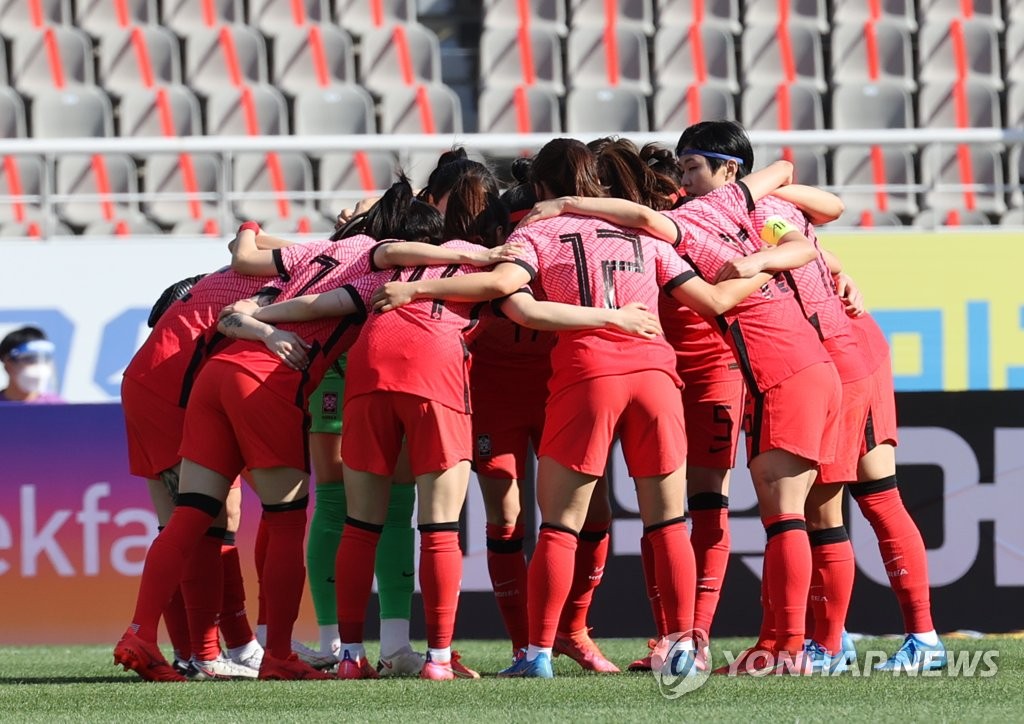- California Assembly OKs highest minimum wage in nation
- S. Korea unveils first graphic cigarette warnings
- US joins with South Korea, Japan in bid to deter North Korea
- LPGA golfer Chun In-gee finally back in action
- S. Korea won’t be top seed in final World Cup qualification round
- US men’s soccer misses 2nd straight Olympics
- US back on track in qualifying with 4-0 win over Guatemala
- High-intensity workout injuries spawn cottage industry
- CDC expands range of Zika mosquitoes into parts of Northeast
- Who knew? ‘The Walking Dead’ is helping families connect
S. Korea to face Uzbekistan, Mongolia in AFC Women’s Asian Cup qualifiers
South Korea will compete with Uzbekistan and Mongolia to qualify for the top Asian women’s football tournament next year.
The draw for the qualifying campaign of the 2022 Asian Football Confederation (AFC) Women’s Asian Cup on Thursday showed South Korea will face Uzbekistan and Mongolia in Group E. Their qualifying matches will be hosted by Uzbekistan.
The qualifiers are scheduled to take place from Sept. 13 to 25. A total of 28 teams were drawn into four groups of four and four groups of three, with the winners of each group qualifying for the 2022 AFC Women’s Asian Cup that will run from Jan. 20 to Feb. 6 in India.
Defending champions Japan, 2018 runners-up Australia and third-placed China, as well as hosts India, have already secured places in the continental tournament.
South Korea finished fifth in the 2018 AFC Women’s Asian Cup in Jordan.
The 2022 AFC Women’s Asian Cup doubles as the Asian qualification for the 2023 FIFA Women’s World Cup in New Zealand and Australia.
The Taeguk Ladies have yet to win the AFC Women’s Asian Cup. Their best result came in 2003 with a third-place finish.
Led by head coach Colin Bell, South Korea failed to advance to the Tokyo Olympic Games after losing playoffs to China in April.

South Korea women’s national football team players huddle during the first leg of the Asian Olympic women’s football qualifying playoff at Goyang Stadium in Goyang, Gyeonggi Province, on April 8, 2021. (Yonhap)











